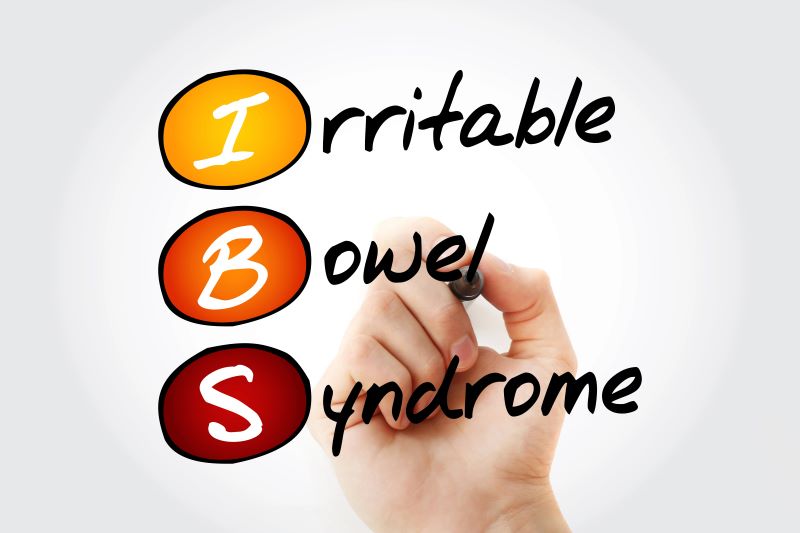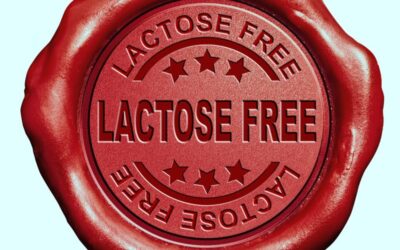Irritable bowel syndrome (IBS) can range from ‘bothersome’ to ‘debilitating’. But, finding some relief can be difficult. There is a plethora of information available about IBS treatment options. Trusted sites for information about IBS symptoms and IBS treatment options in the UK are: NHS and NICE guidance. In this blog, I aim to discuss IBS symptoms and when it’s best to see your GP, then the various IBS treatments available in the UK currently. You may find it useful to look at some of my other blogs:
- IBS symptoms
- FAQs about IBS symptoms
- IBS and diarrhoea
- IBS and constipation
- Does low FODMAP mean weight loss
- I also have some delicious low FODMAP recipes on my website.
What is IBS?
IBS can be difficult to talk about, but it’s much more common than you think. In fact, IBS affects one in five people at some stage of their lives. IBS is often described as a ‘functional gut disorder’. This is often treated with medication to try and manage the symptoms. However, drug treatment can often add to problems. The symptoms of IBS are very individual, but often include bloating, abdominal cramps and pain, excessive wind, diarrhoea and constipation to name just a few. IBS symptoms has an emotional knock-on effect, increasing stress levels, causing anxiety and embarrassment and significantly affecting a sufferers’ work and social life. See my website for blogs, recipes and other information to help with your IBS symptoms.
Should I see my GP?
You should see your GP if you have IBS symptoms. This is especially important if you’ve had a sudden change to your bowel habit or you experience rectal bleeding. Your GP may suggest some blood tests. These will be used to eliminate more serious reasons for your IBS symptoms. There are various IBS treatment options, which are discussed in this blog. Prescribed or over-the-counter medication can help, but often this just masks the symptoms, at best. See below for further information on IBS medication. However, making some changes to your diet may help address the root causes.
Making changes to your diet
Making some simple changes to your diet can help improve your IBS symptoms. Eating regularly is important for a regular bowel habit and to provide the nutrients needed to stay healthy. Breakfast makes a great start to the day and a high fibre cereal e.g. porridge, releases energy slowly, keeping us feeling satisfied for longer too. A variety of foods gives the broadest range of nutrients. So, don’t get stuck in a rut, try: varying your sandwich fillings; different fruits; and different combinations of foods. Protein is vital for growth and repair. Two portions per day of meat, fish, poultry, dairy or plant-based options keeps our bodies healthy. Five portions of fruit and vegetables provides a range of vitamins and minerals. Of course, limiting fatty and sugary foods always underlies a healthy diet, especially for those with an eye on their weight.
Also, most people need to up their game when it comes to fluids. We should aim to drink between 1.5-2 litres of fluid daily. Ideally, this should be water or squash, but tea and coffee can contribute to this total, although may have a diuretic effect. In the warmer weather we need a little more. If you exercise, you’ll also need more to replace losses due to perspiration. Make use of Apps to remind you of your fluid requirements. Or simply fill a bottle and aim to drink at least 2 per day in addition to your normal drinks to increase your fluid intake.
The low FODMAP diet – does it work?
The low FODMAP diet is recommended by the NHS and NICE as an effective IBS treatment. So, what are FODMAPs? This is an easy term for: Fermentable Oligosaccharides, Di-saccharides, and Polyols (so you know now why we call them FODMAPs!) The low FODMAP diet is specifically an elimination diet that helps to identify the triggers that cause the symptoms of IBS. The low FODMAP diet is ‘evidence-based’ and importantly, only a temporary diet. Research shows that the low FODMAP diet improves symptoms in over 75% of IBS sufferers, especially with the guidance of an IBS Dietitian trained in FODMAPs.
IBS treatment involves 3 phases: elimination; reintroduction; and personalisation. The elimination phase reduces IBS symptoms and lasts around 4-8 weeks. Once your symptoms are reduced and stable, you can begin the reintroductions, which takes 6-10 weeks. Reintroducing foods enables you to identify FODMAPs which trigger your symptoms. This is very individual, as triggers are different for each IBS sufferer. Once you’ve identified your triggers, you can enjoy FODMAP foods that don’t cause symptoms, whilst avoiding or limiting those that do. This is the personalisation phase.
Medication as IBS treatment
Your GP may suggest some medication to improve your IBS symptoms. These may be: antispasmodic drugs (such as alverine citrate, mebeverine hydrochloride and peppermint oil); laxatives (if constipation is the problem); antidiarrhoeals (if diarrhoea is the main problem); or antidepressants (such as amitriptyline or citalopram) which can help ease the symptoms of IBS. You may be referred you to a specialist for further investigations if you have severe symptoms and medicines have not helped.
If constipation is not responding to laxatives and you’ve had symptoms for over 12 months other drugs can be tried, such as linaclotide. If you have loose stools, then loperamide/immodium may help. These medications can be used alongside dietary changes to improve stool consistency. See my other blogs for specific information on constipation and diarrhoea. It’s always wise to check with your GP or pharmacist before taking any medication, especially if you have any other underlying conditions or you take other medication.
Probiotics
Many studies have shown the effectiveness of probiotics to relieve IBS symptoms. Sometimes the trillions of natural bacteria we have in our gut gets knocked out of balance by a change in diet or antibiotics used to treat infections. Probiotics can be an effective in restoring the balance of bacteria in the gut.
Probiotics are found naturally in some yoghurts, fermented milk and other foods. They are also sold commercially in tablet or capsule form. Most probiotics used in IBS treatment fall under two main groups: Lactobacillus and Bifidobacterium. These are thought to strengthen the intestinal barrier, assist the immune system in removing harmful bacteria, and break down nutrients.
Probiotics are usually measured in colony forming units (CFUs). Products contain a range from millions, up to 100 billion CFUs. As a general rule, a typical dose should provide at least 1 billion CFUs, with doses up to 20 billion CFUs daily being considered safe for healthy adults. These should be taken for at least a month. If considering probiotics, always check with your GP or pharmacist, especially if you take other medication or have underlying conditions.
Exercise and relaxation
Getting enough exercise is essential for physical health and mental well-being. Exercise is thought to ease IBS symptoms by minimizing stress, improving bowel function, and reducing bloating. It shouldn’t be vigorous though, as this can aggravate symptoms. Walking, cycling or swimming can be sufficient, but the important thing is to enjoy your exercise. Walking is a great form of regular exercise and needs no specialist equipment. When done regularly, walking can manage stress and promote bowel movements. Especially important if you suffer from constipation. Overall, increasing physical activity improves IBS symptoms, as well as quality of life, fatigue, depression and anxiety on the long term.
Regular exercise also releases endorphins, which helps with relaxation. Relaxation is a primary component of IBS management. Take time to relax. Relaxation exercises can be: deep abdominal breathing, muscle relaxation or visualization imagery. These are best done alongside mindfulness, meditation or yoga. Others find relaxation through aromatherapy or massage. Just find something that suits you.
Alternative therapies
Research has found that hypnotherapy may help improve IBS symptoms in some sufferers. It can also help relieve other symptoms associated with IBS such as nausea, fatigue, backache, and urinary problems. Gut-directed hypnotherapy typically involves several sessions with a trained therapist.
The jury is still out with regard to the effectiveness of acupuncture as an alternative therapy for IBS treatment. Acupuncture has been shown to improve chronic pain and can also be useful in reducing stress, anxiety, and fatigue. But, if you’re considering this as an IBS treatment option, be sure to seek out a qualified therapist.
Future IBS treatment options
As IBS symptoms are a world-wide phenomena, there is a great deal of research underway to find the best IBS treatment options. One that is currently attracting much optimism is FMT (faecal microbiota transplantation). FMT involves the transplantation of faecal matter from a healthy person into the large intestine of someone who is struggling with IBS or other gut issues. The idea is to restore a healthy balance of gut bacteria, by introducing more ‘good’ bacteria.
FMT appears to be a promising treatment for IBS, but further studies are needed before it can be applied in everyday IBS treatment. In the UK, NICE only recommends offering this treatment for patients with recurrent gut infections. However, this is currently restricted to Clostridium difficile (C diff), where other treatments have been unsuccessful.
As IBS is a problem for populations around the world, there is a great deal of research ongoing. These focus on further dietary manipulations, drug treatments and novel ideas such as FMT. So far, a combinaton of dietary changes alongside exercise and relaxation seem to form the best treatment plan currently available.
The low FODMAP diet – an IBS treatment option
If you decide that the low FODMAP diet is for you, then consult an IBS dietitian. The low FODMAP diet improves symptoms in over 75% of IBS sufferers. However, the best results are seen when a patient has the advice and support of an IBS dietitian trained in FODMAPs.
I’m an IBS Dietitian based in Cardiff, but work across the UK via virtual consultations. I have vast experience of treating IBS symptoms and the low FODMAP diet. See the testimonials of my happy clients. I offer a free initial telephone consultation, so why not arrange a call today and we can decide together whether this is the right choice for you.




